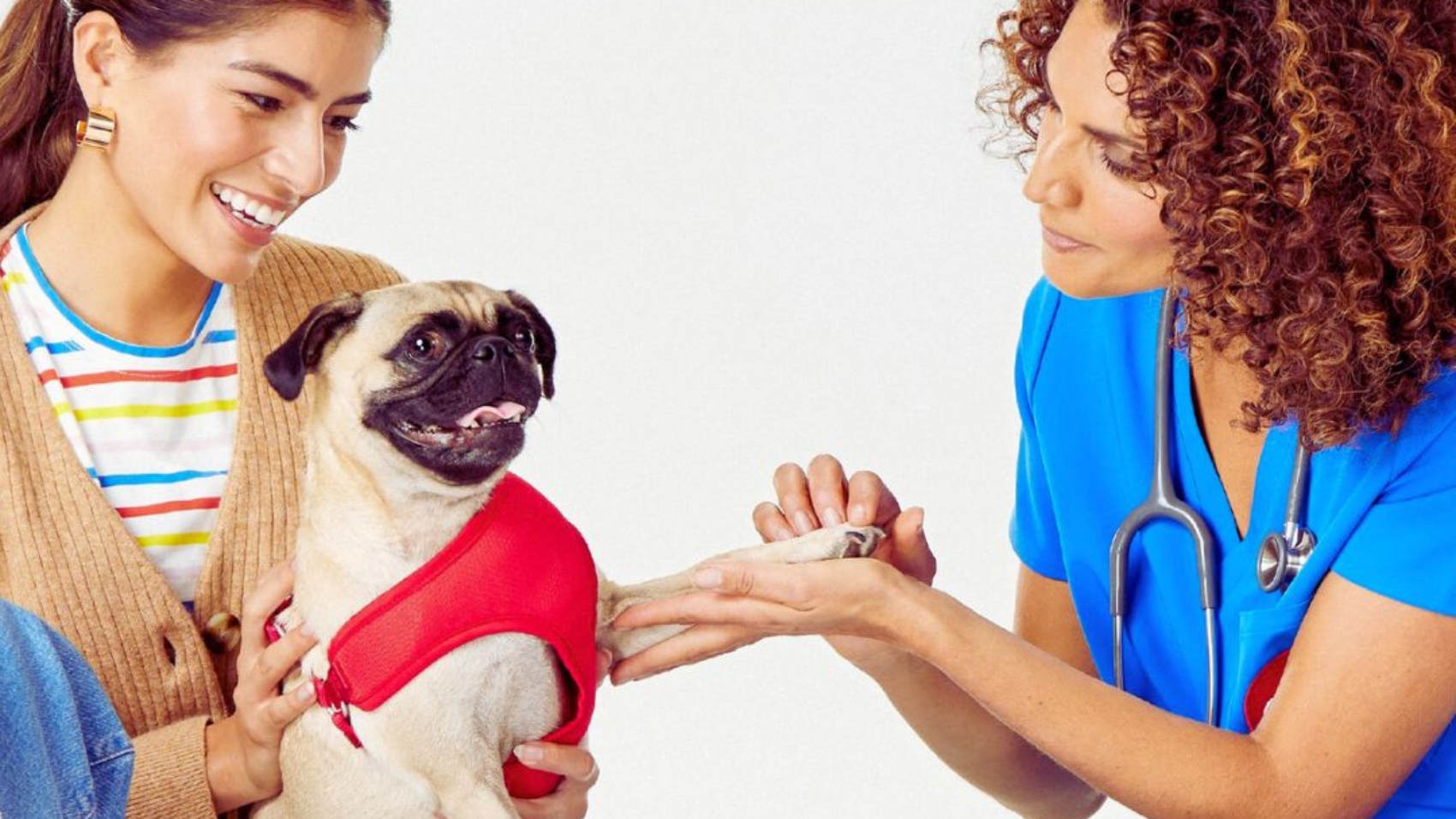Pet clinic explore everything you need to know about your pet’s healthcare needs, what to expect from a well- practice, how to make the most of your visits
Pet clinic require regular health check-ups, preventative treatments, and personalized care to live a long, healthy, and happy life. Understanding how to take care of your pet’s companion with the help of a trusted pet clinic is essential. From routine vet visits to emergency services and preventive care. With expert tips from professional veterinarians, this comprehensive blog post will help you navigate your pet’s health journey with ease and confidence.


The Essential Role of Pet Clinics in Your Pet’s Health
Pet clinics are crucial for maintaining the health and well-being of your furry friends. Unlike emergency animal hospitals, pet clinics focus on routine care and preventive services. Here’s why they are vital:
- Preventive Care: Regular check-ups, vaccinations, parasite control (e.g., fleas, ticks, worms), and health screenings to prevent illnesses and detect issues early.
- Diagnostic Services: Comprehensive diagnostics like blood tests, X-rays, and ultrasounds to identify health problems before they become serious.
- Dental Care: Services including teeth cleaning, extractions, and overall management of oral health to prevent dental issues.
- Surgical Services: Both minor procedures, such as spaying or neutering, and more complex surgeries.
- Nutritional Counseling: Guidance on appropriate diets, including special nutritional needs for conditions like obesity or diabetes.
- Grooming Services: Essential care such as skin treatments, nail trimming, and general grooming to support your pet’s health and appearance.
- Behavioral Counseling: Professional advice to help with behavioral issues, including anxiety, aggression, and training challenges.
- Emergency Services: While not typically open 24/7, many clinics offer emergency care during their hours or coordinate with emergency animal hospitals for after-hours treatment.
The Importance of Regular Pet Clinic Visits
Routine vet visits are essential in ensuring your pet remains in optimal health throughout their life. Many pet owners assume that if their pet appears healthy, there is no need for a check-up. However, animals can mask symptoms of illness, and early detection is crucial for treating conditions before they become more severe or costly to manage.
- Early Detection of Health Issues: Regular vet check-ups help catch potential health problems before they escalate. Whether it’s dental disease, heart issues, or early signs of cancer, detecting these early can lead to better treatment outcomes.
- Vaccinations: Staying on top of your pet’s vaccinations is essential for protecting them from serious diseases like rabies, distemper, and parvovirus. A vet will create a customized vaccination plan based on your pet’s age, health, and lifestyle.
- Parasite Prevention: Fleas, ticks, and worms can cause significant health issues in pets. Your vet will recommend the most effective parasite prevention treatments, including flea control and heartworm medication, tailored to your pet’s specific needs.
- Weight Management: Pet obesity is an increasing concern, especially in dogs and cats. Overweight pets are more prone to conditions like diabetes, joint problems, and heart disease. Your vet will monitor your pet’s weight and offer advice on diet and exercise to keep them at a healthy weight.
- Dental Health: Oral care is often overlooked, but untreated dental problems can cause pain, infections, and even affect organs. During routine check-ups, vets assess your pet’s dental health and provide cleanings or extractions when necessary.
What Is a Comprehensive Pet Clinic?
A comprehensive pet clinic offers a wide range of veterinary services to cover all aspects of your pet’s health, from preventive care and diagnostics to treatment of illnesses, surgeries, and long-term wellness support. The goal is to not only treat existing health problems but also to prevent them, ensuring your pet lives a long, healthy, and active life.

Pet clinics that offer comprehensive care typically include the following services:
- Preventive Care and Wellness Exams
- Vaccinations
- Dental Care
- Nutritional Counseling
- Diagnostic Testing
- Surgical Services
- Chronic Disease Management
- Emergency Care
- Grooming and Skin Care
- Behavioral Counseling
Key Services Offered at a Comprehensive Pet Clinic
- Preventive Care and Wellness Exams
Wellness exams are essential for maintaining your pet’s health. During these visits, the vet will:
- Perform a thorough physical exam.
- Check weight, behavior, and vital signs.
- Evaluate the pet’s eyes, ears, teeth, and coat.
- Recommend tests such as blood work or urinalysis to detect early health issues.
These exams are recommended at least annually, though older pets or those with chronic conditions may need more frequent check-ups.
- Vaccinations
Vaccinations protect pets from life-threatening diseases. A comprehensive pet clinic will develop a vaccination schedule based on your pet’s age, lifestyle, and risk factors. Common vaccines include:
- Rabies: Required by law and crucial for preventing this deadly disease.
- Distemper and Parvovirus: Important for dogs.
- Feline Herpes virus and Calicivirus: Protect cats from respiratory infections.
- Dental Care
Oral health is critical for preventing pain, infections, and long-term damage to vital organs. Comprehensive clinics provide:
- Regular dental cleanings and exams.
- Treatment for conditions like gingivitis or periodontitis.
- Home care advice, such as brushing and dental treats.
- Nutritional Counseling
Diet is key to your pet’s health. A clinic provides personalized advice based on factors such as:
- Age, breed, and activity level.
- Pre-existing conditions like obesity or diabetes. Special diets may be recommended to manage specific health concerns.
- Diagnostic Testing
Comprehensive clinics are equipped with advanced diagnostic tools, including:
- Blood tests to detect infections or organ issues.
- X-rays and ultrasounds to identify internal problems.
- Skin and allergy testing for pets with skin conditions.
- Surgical Services
In addition to routine procedures like spaying and neutering, comprehensive clinics offer:
- Tumor removal.
- Orthopedic surgery.
- Emergency surgeries. Pre- and post-operative care ensure safe recovery.
- Chronic Disease Management
- For pets with long-term conditions such as diabetes or arthritis, comprehensive care include
- Monitoring health markers like blood sugar.
- Prescribing medications and supplements.
- Creating custom plans for diet, exercise, and pain management.
- Emergency Care
Many comprehensive clinics are prepared to handle emergencies during regular hours. Some clinics also partner with emergency hospitals for after-hours care, providing services like:
- IV fluids.
- Emergency surgeries and diagnostic imaging.
- Grooming and Skin Care
Grooming is important for your pet’s hygiene and comfort. Clinics often offer services such as:
- Bathing, coat trimming, and nail clipping.
- Skin condition treatment, including for allergies or infections.
- Behavioral Counseling
Behavioral issues, such as aggression or anxiety, can strain the bond between pets and owners. A comprehensive clinic offers:
- Expert advice on training techniques.
- Environmental adjustments or medications for severe cases.
How to Choose the Right Pet Clinic for Your Pet
While regular visits to the pet clinic are essential, there are many things you can do at home to ensure your pet stays healthy between visits:

Selecting the right pet clinic is vital for your pet’s health and well-being. Consider these factors when making your choice:
- Reputation: Check reviews, ask for recommendations from other pet owners, and research the clinic’s reputation in your community.
- Services Offered: Ensure the clinic provides the services your pet needs, such as dental care, advanced diagnostics, or nutritional counseling.
- Location: Choose a clinic that’s conveniently located, particularly for emergencies.
- Professionalism and Compassion: The clinic should have a caring and experienced team of veterinarians and staff who treat your pet with kindness and expertise.
- Cost: While pricing is important, don’t sacrifice quality care for a lower cost. Look for a clinic that offers reasonable rates and clear billing practices.
Tips for Maintaining Your Pet’s Health at Home
While regular visits to the pet clinic are essential, there are many things you can do at home to ensure your pet stays healthy between visits:
In addition to regular vet visits, here are some things you can do at home to keep your pet healthy:
- Balanced Diet: Provide a nutritious diet tailored to your pet’s age, size, and breed.
- Regular Exercise: Keep your pet active with daily exercise to prevent obesity and provide mental stimulation.
- Brushing and Grooming: Regular grooming helps maintain your pet’s coat and skin health, while allowing you to check for lumps or parasites.
- Monitor Behavior Changes: Watch for signs like lethargy, excessive scratching, or loss of appetite, and consult your vet if you notice anything unusual.
Free Pet Clinic
What Is a Free Pet Clinic?
A free pet clinic provides low-cost or no-cost veterinary services to pets, often aimed at helping low-income pet owners, shelters, or underserved communities. These clinics are typically run by nonprofit organizations, animal welfare groups, or supported by donations and grants. Some operate on a permanent basis, while others are temporary, offering services through community outreach events.
The main objectives of free pet clinics are to:
- Provide essential healthcare to pets, regardless of their owner’s financial situation.
- Reduce the number of pets surrendered to shelters due to treatable health issues.
- Promote responsible pet ownership through services like vaccinations, spaying/neutering, and education.
How to Find a Free Pet Clinic
If you’re looking for affordable or free veterinary care, here are ways to find a clinic near you:
- Contact Local Animal Shelters: Many shelters either run free clinics or can refer you to one in your area.
- Nonprofit Organizations: Groups like the ASPCA, Humane Society, or local animal rescues often host or know of free clinic services.
- Online Resources: Websites like Petfinder or local government animal services often list upcoming free clinic events.
- Veterinary Schools: Some vet schools offer free or low-cost care through clinics where students, supervised by licensed vets, provide treatment.
VIP Pet clinic
What Is a VIP Pet Clinic?
A VIP (Very Important Pet) clinic offers a luxurious and personalized approach to veterinary care, distinguishing itself from standard clinics by providing a premium, holistic experience for both pets and their owners. Unlike traditional veterinary practices that focus primarily on essential medical services, VIP pet clinics integrate state-of-the-art medical treatments with additional high-end amenities, such as spa services, custom wellness plans, and concierge care.

Key Features of VIP Pet Clinics:
- Comprehensive Health and Wellness Plans: Tailored to meet each pet’s unique needs.
- Personalized Attention: Dedicated care from veterinarians and staff.
- Luxury Grooming and Spa Services: High-end treatments to keep pets looking and feeling their best.
- Advanced Diagnostic and Surgical Options: Cutting-edge technology for precise and effective care.
- Specialist Access and Emergency Care: Convenient availability of specialized medical professionals.
- Concierge Services: Includes home visits and follow-up care for added convenience.
Exclusive Services at VIP Pet Clinics:
- Customized Wellness Plans: VIP pet clinics create personalized wellness plans based on each pet’s breed, age, lifestyle, and health history. These plans aim to provide proactive care, prevent illnesses, and extend your pet’s lifespan. Components of these plans may include:
- Routine Wellness Exams: More frequent check-ups to identify potential health issues early.
- Vaccination Schedules: Customized to fit your pet’s specific needs.
- Nutritional Counseling: Diet plans that address your pet’s age, activity level, and health concerns.
- Preventive Care: Services such as parasite control, dental care, and weight management.
- Luxury Grooming and Spa Treatments: VIP pet clinics often offer premium grooming and spa services, including:
- Hydrotherapy Baths: Enhances coat condition and provides relief for skin issues or arthritis.
- Pet Facials: Gentle treatments to reduce tear stains and promote healthy skin.
- Massage Therapy: Relieves stress and addresses muscle tension or joint pain.
- Coat Styling and Trimming: Professional grooming that maintains your pet’s coat and prevents matting.
- Advanced Diagnostic and Surgical Care: Equipped with cutting-edge technology, VIP clinics offer:
- Digital X-Rays and Ultrasounds: Detailed imaging for diagnosing complex conditions.
- CT Scans and MRIs: Advanced imaging for detecting tumors, neurological conditions, or internal injuries.
- Laser Surgery: Minimally invasive procedures with quicker recovery times.
- Stem Cell Therapy: Regenerative treatments for chronic conditions.
- Orthopedic Surgery: Specialized care for bone or joint issues.
- Specialist Care and Referrals: VIP clinics often have in-house specialists or strong partnerships with experts in various fields like cardiology, dermatology, and oncology. They handle referrals and follow-up care to ensure a seamless experience.
- Concierge Services and Home Visits: For added convenience, VIP clinics may offer:
- Home Visits: Routine care provided at your home.
- Transportation Services: Pick-up and drop-off for grooming, medical visits, or surgeries.
- After-Hours Care: Access to emergency services or priority appointments.
- Holistic and Alternative Therapies: Integrating alternative therapies, VIP pet clinics may offer:
- Acupuncture: For pain relief and improved mobility.
- Chiropractic Care: Aligns vertebrae and improves mobility.
- Herbal Medicine and Supplements: Natural remedies for health issues.
- Hydrotherapy: Water-based exercises to aid mobility or recovery.
Why Choose a VIP Pet Clinic?
While VIP pet clinics might come with a higher price tag, they offer significant benefits for pet owners who value top-tier, personalized care:
- Personalized Attention: More time with veterinarians for comprehensive discussions and care.
- Convenience: Flexible scheduling and home care options.
- Comprehensive Care: Access to advanced diagnostics, specialists, and alternative therapies under one roof.
- Luxury Services: High-end grooming and spa treatments that contribute to your pet’s overall health and happiness.
Is a pet hospital the same as a vet?
A pet hospital and a vet clinic are similar but not quite the same. A vet clinic typically handles routine care, such as vaccinations, check-ups, and minor illnesses. A pet hospital, on the other hand, is usually equipped for more complex procedures and emergencies. Hospitals often have more advanced diagnostic equipment and may provide specialized care, including surgeries and critical care.
What is the meaning of pet doctor?
A “pet doctor” is a colloquial term for a veterinarian. It refers to a professional who is trained to diagnose, treat, and prevent illnesses and injuries in animals. Veterinarians can work in various settings, including clinics, hospitals, or even in mobile practices, and they provide medical care to pets like dogs, cats, birds, and other animals.
What is a VIP pet?
“VIP pet” typically stands for “Very Important Pet.” It’s a playful or affectionate way to describe a pet that is especially cherished and valued by its owner. The term is often used to highlight the special treatment and attention that the pet receives, sometimes in the context of premium pet services or products. For example, a pet might be referred to as a VIP if it is pampered with luxurious grooming, high-quality food, or exclusive pet accessories.
Can doctors treat pets?
Yes, doctors can treat pets, but they need to be veterinarians specifically trained to care for animals. Veterinarians have specialized education and training to diagnose and treat a wide range of animal health issues. They can perform medical procedures, prescribe medications, and provide preventive care for pets. General medical doctors, on the other hand, are trained to treat human patients and would not be equipped to handle pet health issues.
What is the meaning of animal clinic?
An animal clinic is a medical facility that provides veterinary care for pets and other animals. These clinics typically offer services such as routine check-ups, vaccinations, diagnostic testing, surgery, and emergency care. They are staffed by veterinarians and veterinary technicians who are trained to diagnose and treat various health issues in animals.
Conclusion
Comprehensive care at a pet clinic extends far beyond routine visits, integrating preventive measures, diagnostic testing, emergency care, and ongoing management of chronic conditions. Opting for a clinic that provides this level of care ensures that your pet receives the highest quality health services at every stage of their life, from their early years as a puppy or kitten to their senior years.
